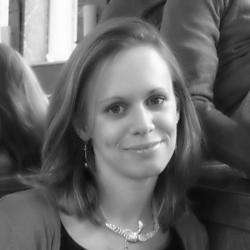The decision to appoint the Early Opera Company and Scanner as this year’s associate artists says much about Spitalfields Music Summer Festival, an eclectic cornucopia of classical and non-classical music concerts by professional and amateur artists, bespoke tours, and family activities. These take place in some of the East End’s most beautiful buildings – some familiar and well-used, others hidden gems that deserve far more attention than they get. The music put on is a combination of popular and well-known pieces, and those which get far fewer outings than they really deserve.
Handel’s oratorio Susanna, the highlight of the Early Opera Company’s and director Christian Curnyn’s residency at the Festival, plainly falls into the latter category. The libretto is based on a story in the Biblical book of Daniel, but its adaptation reads more like an operatic plot: the pretty and virtuous Susanna, in love with her husband Joacim, is pursued by two comically cast Elders – one lecherous but remorseful about his feelings, the other shamelessly open in his pursuit. When she rejects their advances, she finds herself accused by them of being unchaste with a youth. She is sentenced to execution, but the boy prophet-to-be Daniel detects inconsistencies in the Elders’ stories and proves that she had been wrongly convicted. Love wins the day, of course, and she is happily reunited with her Joacim.
The première of this opera in February 1749 – the same season as the première of Handel’s better-known Solomon – was to a full house, but the celebration of carnal lust proved a little too much. The oratorio was panned at the time, and is still rarely heard today. The structure, too, is not in itself engaging: it is a relatively long work, with da capo aria after da capo aria, and moods change slowly – it is not the most dramatic of pieces. However, the music itself is exquisite, yet uncomplicated, and fuses Italian structure with English style.
Thank goodness Susanna got the Early Opera Company treatment. Rapidly establishing itself with an array of stylish, accomplished and musically driven performances of works that are not always popular favourites, the EOC gave this oratorio the airing it deserved. Although quasi-operatic in character, it was rightly unstaged – though the decision to seat Susanna and Joacim on one side of the stage and the Elders on the other gave a welcome sense of “us versus them” about proceedings. Christian Curnyn directed ably from the harpsichord, with the singers placed just slightly in front; this posed relatively little problem, save that the orchestra was occasionally out of step with the Second Elder in his arias. He had a knack of milking the score for expression, tapping into the subtle differences in style that Handel wrote in for the different characters, and creating a ravishing, sumptuous sound to buoy the rich timbre of the excellent chorus.
The soloists, too, were very good indeed. Derek Welton’s weightily sonorous bass gave his character, Second Elder (and, briefly, Susanna’s father Chelsias), an unnerving force, in contrast to Thomas Walker’s ingratiating First Elder, sung pleasingly entertainingly. The Franco-British soprano Emilie Renard was cast perfectly in the title role of Susanna; hers is on first impression a light and delicate voice, but she soon proved that there was considerable body behind it – her rebuffals of the Elders’ advances were convincing indeed. The undoubted vocal highlight was the exquisite countertenor voice of Tim Mead, whose effortless cool made for a delightful Joacim who appeared collected despite his wife’s turmoils. Two of the smaller roles were taken by members of the chorus: Judge, sung with authority by bass William Gaunt, and Daniel, sung by the beautifully pure-sounding soprano Emma Walshe. This was a performance to satisfy all Handel fans, whether die-hard or dabblers.


